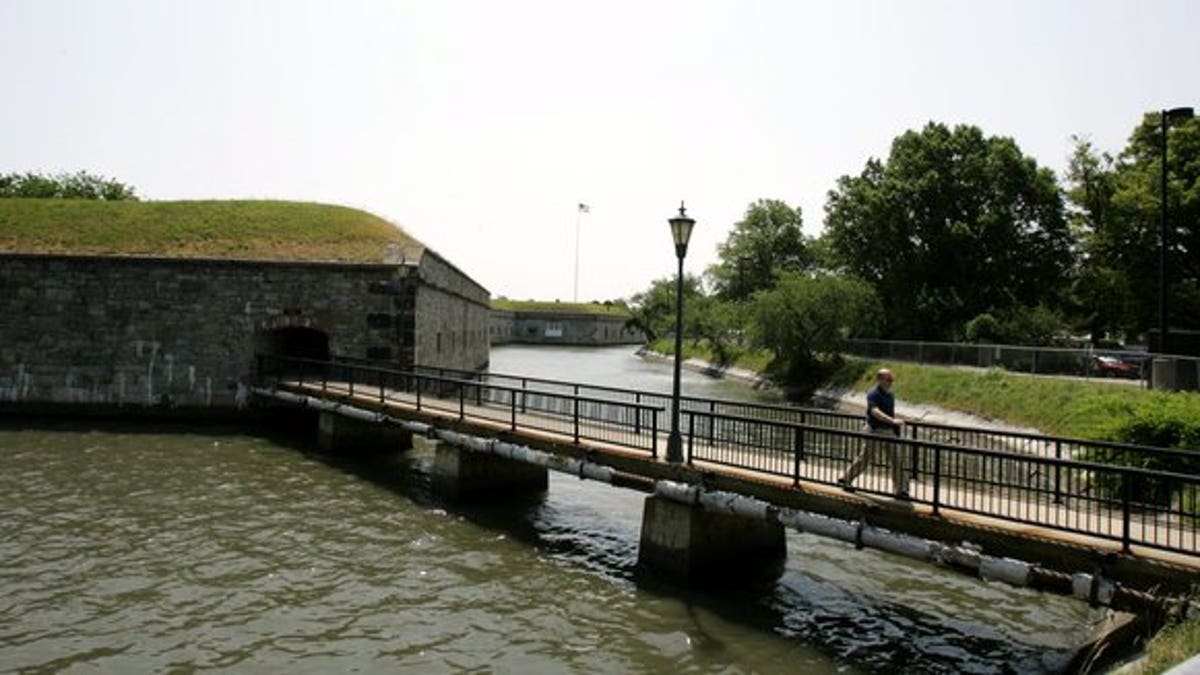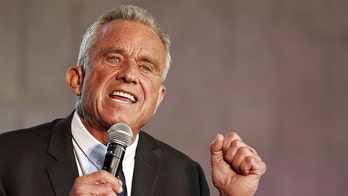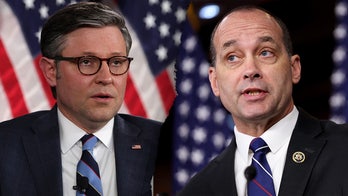
President Obama says his declaration of a deactivated Army fort as a national monument Tuesday afternoon will help create jobs, but a spokesman for House Speaker John Boehner says the move “tanks on the straight face test.” (AP)
President Obama says his declaration of a deactivated Army fort as a national monument Tuesday will help create jobs, but a GOP congressional leadership aide says the claim “tanks on the straight face test.”
Obama signed a proclamation Tuesday afternoon to designate Fort Monroe in Virginia’s Tidewater area as a national monument.
The White House noted that a 2009 economic analysis commissioned by the Fort Monroe Authority said enacting a plan to reuse the fort that once played a critical role in the nation’s slave history would help create nearly 3,000 jobs in Virginia.
“Today isn’t just about preserving a national landmark – it’s about helping to create jobs and grow the local economy,” Obama said in a statement. “Steps like these won’t replace the bold action we need from Congress to get our economy moving and strengthen middle-class families, but they will make a difference.”
But a GOP leadership aide said framing the proclamation as an effort to create jobs is proof that the Obama administration is “officially out of ideas to create jobs.”
“The practical effect is to tell Americans they’ve fully exhausted ways for the president to act without engaging Congress,” the aide said. “It tanks on the straight face test to suggest this action is going to put Americans back to work.”
The aide expressed hope that this proclamation will represent a turning point.
“Hopefully, now that they’ve scraped the bottom of the barrel, the White House will finally drop the charade and work with Republicans on legislation that will actually help American job creators – legislation like the Forgotten 15 or the four bills the House will pass this week designed to help small businesses raise money to expand and hire more workers.”
White House Press Secretary Jay Carney said Tuesday local officials in Virginia, including Republican Gov. Bob McDonnell, made the claim that the designation would create jobs.
"So I would suggest the speaker take it up with them," he said. "The president believes this is an action he can and should take that is inherently good because of the designation and also it's a job creator."
In a statement to FoxNews.com, McDonnell said the designation is a "great opportunity to grow our tourism industry while sharing our history."
"It’s the result of years of work and bipartisan cooperation by officials at all levels of government and this designation will help us preserve our past while creating good jobs for our citizens and bringing more visitors to the Commonwealth,” he said.
Since Labor Day, Obama has been pushing Congress to pass his $447 billion jobs bill. But the Senate last month rejected the whole package and the first provision now that the White House is trying to pass it piece by piece.
Frustrated with his lack of success in Congress, Obama has turned to executive actions to show voters that he will stand before next November that he is trying to turn the economy around. In just the last week, Obama has signed five executive orders, including ones to help homeowners refinance at lower mortgage rates and to allow college graduates to simplify and lower their student loan payments.
On Tuesday, Obama is exercising for the first time his authority under the Antiquities Act to declare Fort Monroe a national monument. Presidents since Theodore Roosevelt have used the 1906 law to protect sites deemed to have natural, historical or scientific significance, including the Grand Canyon, the Statue of Liberty and Ellis Island.
The fort and the land it occupies are historically significant because it was where Dutch traders first brought enslaved Africans in 1619. It remained in Union possession during the Civil War and became a place where escaped slaves could find refuge. It's also where Confederate President Jefferson Davis was once imprisoned following the Civil War.
In a 2005 cost-cutting move, the government decided to close the fort and many other military installations. In September, the Army ended its 188-year presence there.
The fort, which occupied a strategic coastal defensive position at the mouth of the Chesapeake Bay, was built after the British sailed north from there and burned Washington.
The Associated Press contributed to this story.




